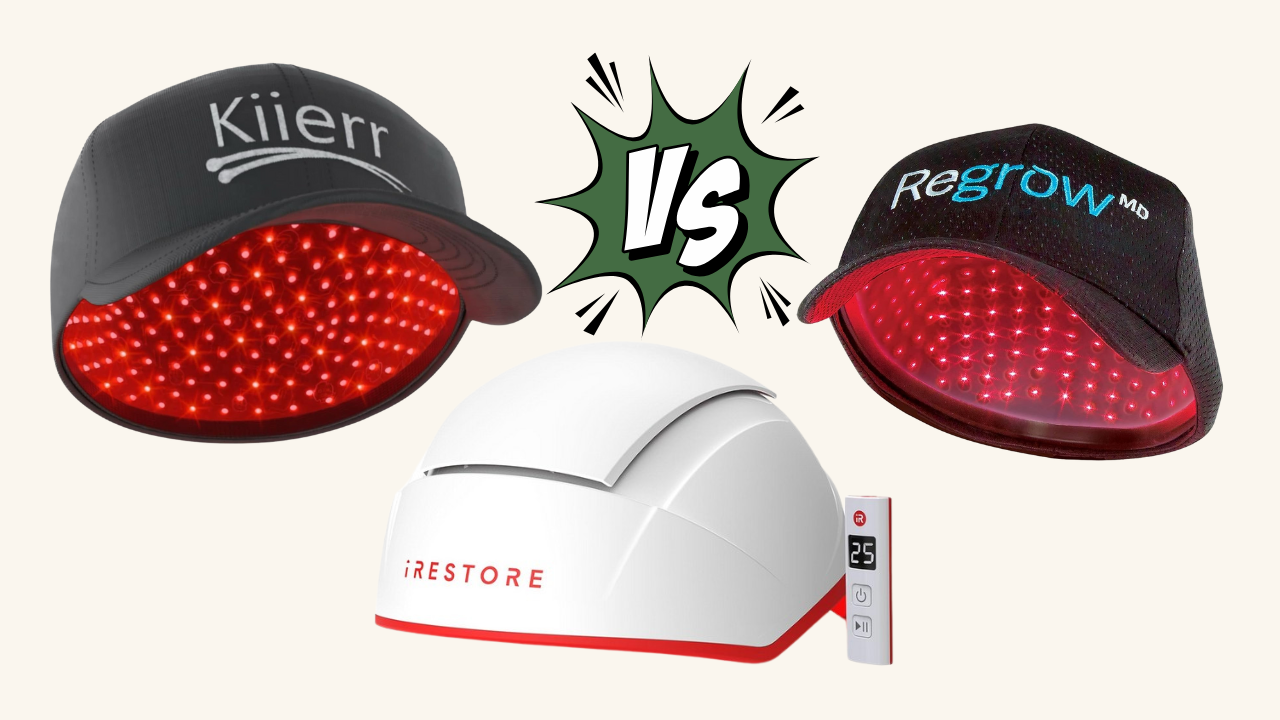Hair loss can be a distressing experience, and for many, the search for a solution leads them to Nioxin, a popular hair care brand designed to combat thinning hair. But what happens when the treatment seems to make the problem worse? If you’re wondering, “Why did Nioxin ruin my hair?“, you’re not alone. In this post, we’ll dive into the possible reasons why Nioxin could negatively impact your hair, how to recover from any damage, and what alternatives might be worth considering. Read on if you’ve been struggling with hair thinning, or if you’re thinking about trying Nioxin.
Table of Contents
What is Nioxin and How Does it Work?
Nioxin is a brand that specializes in products designed to help with thinning hair. It offers a range of shampoos, conditioners, and scalp treatments that aim to promote fuller, thicker-looking hair. The Nioxin system is marketed as a way to cleanse the scalp, reduce product buildup, and improve the overall health of your hair follicles.
Nioxin System Explained
The Nioxin hair care system typically involves three key components:
- Cleanser (Shampoo): This helps remove excess oils and environmental residues that may clog hair follicles.
- Scalp Therapy Conditioner: This product is designed to enhance moisture balance and fortify hair structure.
- Leave-In Scalp Treatment: Applied after washing, it’s meant to thicken existing hair strands and protect the scalp.
Nioxin claims that its products are ideal for reducing breakage and boosting the health of hair follicles, creating a better environment for hair growth. However, it’s essential to note that Nioxin does not contain minoxidil, an FDA-approved ingredient for hair loss treatment.
Why Do Some People Say Nioxin Ruined Their Hair?
While Nioxin is marketed as a solution to hair thinning, not everyone’s experience with the products is positive. For some, the brand’s products appear to have the opposite effect, exacerbating hair loss or causing other issues like dryness, brittleness, or scalp irritation. Let’s look at the most common complaints.
Increased Hair Fall
Many people report noticing increased hair shedding when they first begin using Nioxin. This is often chalked up to an initial shedding phase, where older, weaker hairs are pushed out to make room for new growth. However, for some, this shedding doesn’t stop, and it can be alarming to see more hair in the shower drain.
Dry and Brittle Hair
Another common issue users report is dry, brittle hair after using Nioxin products. This can happen if the shampoo or conditioner strips away too much natural oil, leaving hair weakened and prone to breakage. For individuals with already thin or damaged hair, this can worsen the situation.
Scalp Irritation
Some individuals are sensitive to the ingredients in Nioxin, which may lead to scalp irritation. Symptoms like redness, itching, and flaking can occur, especially if your skin is sensitive to the chemicals used in these formulations. When your scalp becomes inflamed, it may disrupt hair growth and lead to further thinning.
Worsened Hair Texture
A few users also report that their hair becomes thin, limp, or even straw-like after using Nioxin. This could be due to the harshness of the products or an overuse of cleansing shampoos that strip hair of its natural moisture.
Can Nioxin Actually Cause Hair Loss?
It might seem counterintuitive that a product designed to improve hair growth could cause hair loss. However, there are a few reasons why Nioxin might be contributing to hair shedding in some individuals.
Initial Shedding Phase
Some hair treatments, including Nioxin, are designed to trigger a shedding phase at the start of the process. When this happens, you might notice more hair falling out in the early weeks of use. This shedding is often temporary and may eventually give way to new hair growth, but it can be concerning at first.
Allergic Reactions
It’s also possible that you might have an allergic reaction to one or more ingredients in the Nioxin products. If you’re experiencing redness, irritation, or excessive hair loss, it’s important to stop using the product and consult a dermatologist to rule out any allergic responses.
Over-cleansing the Scalp
Frequent use of strong cleansing products like Nioxin shampoo can lead to an over-cleansed scalp. While it’s important to remove buildup, overdoing it can strip your scalp of natural oils, which are crucial for hair health. Without proper nourishment, hair follicles can become weak, leading to increased shedding and thinning.
What Should You Do If Nioxin Is Damaging Your Hair?
If you’ve started using Nioxin and noticed your hair falling out, feeling dry, or experiencing other negative effects, it’s important to act quickly. Here are some steps you can take to mitigate the damage and restore your hair’s health:
Stop Using the Products Immediately
The first step is to stop using Nioxin products immediately. This will allow your scalp and hair to begin recovering from any negative effects caused by the ingredients in the products.
Consult a Professional
If you’re worried about the condition of your hair and scalp, it’s essential to consult a dermatologist or trichologist. They can assess your scalp health and help you determine if there is an underlying condition that needs to be addressed. A professional may recommend a new course of treatment or give you advice on how to manage hair loss.
Switch to a Gentle, Sulfate-Free Shampoo
Once you stop using Nioxin, you should consider switching to a gentle, sulfate-free shampoo that’s designed for dry or thinning hair. These shampoos won’t strip your scalp of essential oils and are usually less harsh than products that contain sulfates or other irritating chemicals.
Restore Moisture with Deep Conditioning
To restore moisture to your hair, consider using a deep conditioning hair mask or nourishing hair treatment. This will help replenish any lost moisture, leaving your hair feeling softer and more manageable.
Give Your Hair a Break
Avoid using heat styling tools and aggressive treatments for a while to allow your hair to recover. Gentle care is key when your hair is damaged, so try to reduce stress on your hair during this period.
Consider Natural Remedies
Natural remedies like scalp massage and essential oils such as rosemary or castor oil can help improve scalp health and support healthy hair growth. Always make sure to patch-test any oils to avoid irritation.
Are There Safer Alternatives to Nioxin for Hair Thinning?
If you’ve had a negative experience with Nioxin, you may want to explore other treatments that are gentler or more effective for your specific needs. Here are some alternatives to consider:
Minoxidil
Minoxidil is an FDA-approved treatment for hair loss and is widely used to treat male and female pattern baldness. It can promote new hair growth by stimulating hair follicles. If you’re looking for an over-the-counter solution, this might be worth considering.
Natural DHT Blockers
Some users turn to natural alternatives like saw palmetto or pumpkin seed oil, which are believed to block DHT, a hormone linked to hair loss. These ingredients are commonly found in natural supplements and may help with hair thinning due to hormonal imbalances.
Gentle Scalp Care Products
Instead of using harsh shampoos, consider opting for scalp care products that focus on nourishing and exfoliating the scalp without stripping natural oils. Look for products with gentle exfoliants like salicylic acid or tea tree oil to keep the scalp healthy.
Nutritional Supplements
Supporting your hair health from the inside is just as important as external treatments. Supplements containing biotin, iron, and vitamin D can support overall hair health and may help with hair thinning.
How Can You Promote Healthy Hair Growth Naturally?
In addition to trying new treatments, there are several ways you can encourage healthy hair growth through natural means:
Eat a Balanced Diet
A diet rich in protein, vitamins, and minerals is essential for promoting healthy hair. Ensure you’re getting enough nutrients from foods like lean meats, fish, leafy greens, and nuts.
Manage Stress
Stress is one of the leading contributors to hair loss. By finding ways to reduce stress, such as exercise, meditation, or relaxation techniques, you can help promote better hair health.
Use Gentle Hair Care Practices
Switch to gentle hair care routines that avoid harsh chemicals or excessive heat. Always be cautious when brushing or styling, as excessive tugging or friction can lead to hair breakage.
What Do Nioxin Reviews Really Tell Us?
When reading Nioxin reviews, it’s important to approach them with a balanced perspective. While some users report positive results, others share concerns about increased hair loss, dryness, and irritation. Here are some factors to consider when reading reviews:
- The specific Nioxin system used (there are different formulations for various hair types).
- How long the reviewer used the products and if they followed the recommended usage instructions.
- Any pre-existing scalp or hair conditions that might have influenced the results.
When Should You See a Professional About Hair Loss?
If your hair loss becomes concerning, or if Nioxin doesn’t seem to be helping, it’s time to see a dermatologist or trichologist. A professional can help you pinpoint the underlying cause of your hair loss and recommend a treatment plan tailored to your needs.
In conclusion, while Nioxin may work wonders for some, it can have the opposite effect for others. If you’ve had a negative experience, know that you’re not alone—and there are steps you can take to recover. Whether it’s switching to gentler products, consulting with a professional, or exploring alternative treatments, remember that healthy hair is a journey. Be patient, and prioritize overall scalp and hair health.



